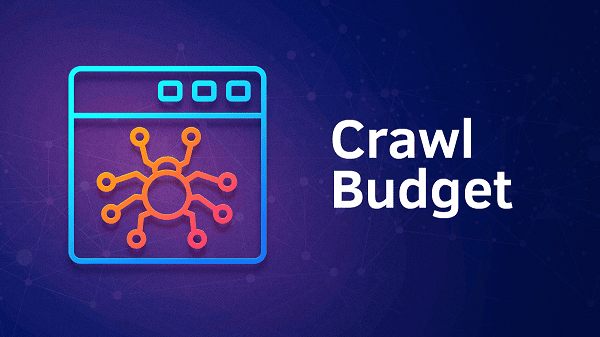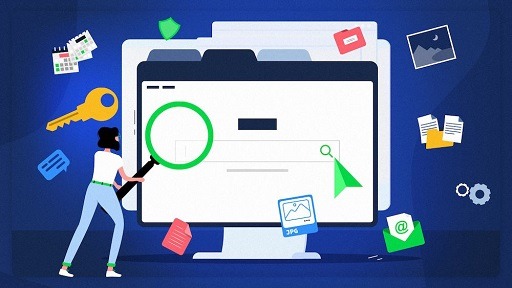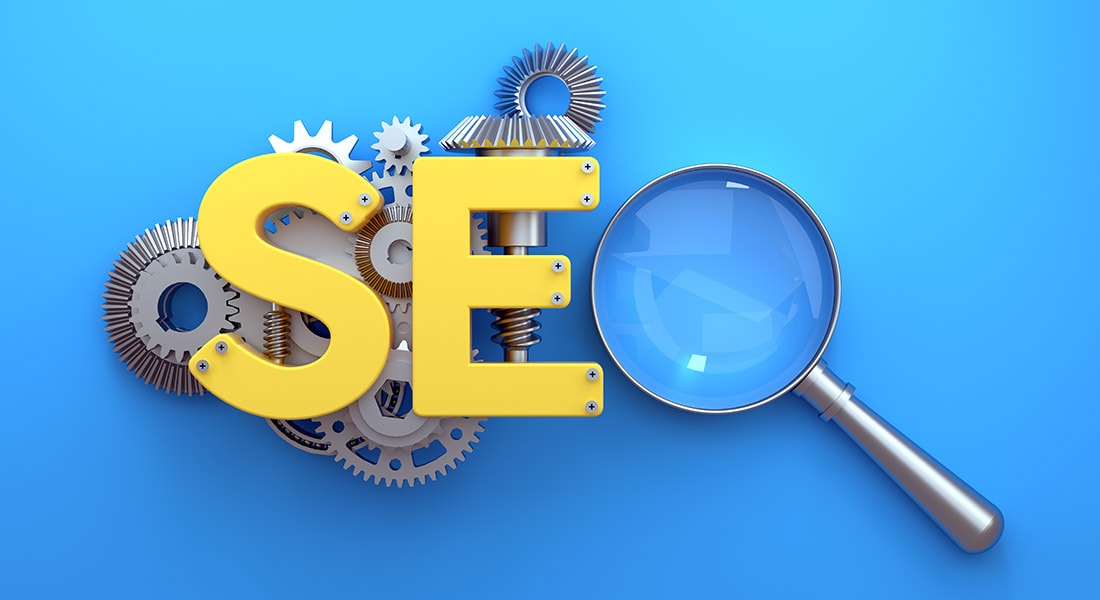Crawl budget is one of the most important concepts in SEO, but often receives little attention. Among a ton of tasks and considerations, Enterprise SEO specialists often rank it lower on their priority list. However, optimizing the crawl budget is not something that should be ignored.
In this article, you will learn how to improve your crawl budget and discover what has changed with this concept in recent years.

What is a Crawl Budget?
Crawl budget means the number of pages search engines spider or bot crawl on your website and how often. That’s a fine balance between not overwhelming the server for Googlebot while trying to meet Google’s intention to crawl your entire domain altogether.
Crawl budget optimization involves a number of measures that help increase the rate of search engine bots’ visits to your pages. By letting crawlers visit more frequently, your updated pages will make their way into the index much quicker, which ultimately means your optimization efforts will pay off sooner and directly influence your rankings.
Further, on crawling a website, there is also consideration for a variety of elements in place that show what percentage a search engine will be crawling: site speed, server errors, crawl budget, and internal linking all make a difference. In fact, the crawl budget will define the maximum number of pages the search engines scan on a website.
For example, a 10,000-page website that constantly updates its content may be crawled daily but is still at the mercy of the spider’s time and resources. Assuming Google crawls 500 pages of your website in a day, it would take 20 days to crawl your entire website.
But if the crawl budget set up by Google for that site happens to be 1000 pages per day, it would take just half the time. However, poor-quality content and broken links could make it much slower and may demand intervention.
By optimizing your crawl budget, you will be able to improve your crawl rate, which is the speed at which search engines scan your site. This will enable you to get a good chance of improving your ranking in Google search results.
Why Is Crawl Budget Optimization Ignored?
To get the answer to this, let’s look at an official blog post from Google that has pretty clear insights. According to Google, crawling alone does not affect rankings directly. Just that statement alone is enough to discourage some SEO professionals from considering a crawl budget. For many, the term “not a ranking factor” translates to “not my concern.”
You may also like: How Does SEO Work: Explained
However, I don’t subscribe to this school of thought. Furthermore, Gary Illyes of Google has gone on record to state that a crawl budget makes sense for very big websites with millions of pages.
If you have a moderately-sized domain, you don’t have to be too worried about the crawl budget. As a matter of fact, Illyes said that if you have millions of pages, it may be a good idea to think about shaving off some content on your domain.
However, SEO is not an on-and-off thing where changing one big factor brings all the desired results. It is more about an iterative process of improvement while watching a lot of metrics. As SEO professionals, our job is to make thousands of small elements optimal.
Moreover, the crawl budget may not have as much effect on crawling as Google’s John Mueller says, it will improve conversion rates and the overall health of a website. With these considerations in mind, it is important to make sure that nothing on your website actively works against your crawl budget.
How to check Website Crawl Budget?
To initiate crawl budget optimization, it is essential to determine the amount of resources allocated by Google and other search engines to your website. Here are some methods you can employ to obtain this information:
-
By accessing Google Search Console
Google Search Console is a free tool that offers valuable insights into how Google indexes your website. By accessing the “Coverage” report, you can view the number of pages crawled and identify any errors that might impact your site’s crawl budget.
Additionally, within the “Settings” section, you’ll find a dedicated “Crawl stats” panel where you can access further information related to crawling activities.
-
By monitoring the crawl status through log files
Log files offer comprehensive information regarding how search engine crawlers interact with your website, including the specific pages they access and the frequency of their scans.
By monitoring your log files, you can readily detect any errors or problems that could impact your crawl budget. This valuable insight enables you to address these issues promptly and optimize your crawl budget effectively.
How to Optimize Your Crawl Budget
Certain aspects of website management remain highly important, while the significance of others has drastically diminished or become irrelevant. It is crucial to focus on what I refer to as the “usual suspects” of website health, which are the fundamental elements that continue to play a significant role in maintaining optimal website performance.
-
Allow Crawling of Your Important Pages in Robots.Txt
This step is straightforward and should be your initial priority. Managing robots.txt can be done manually or by utilizing a website auditor tool.
You may also like: How does Website Indexing for Search Engines Work?
Personally, I find using a tool more convenient and efficient whenever possible. It simplifies the process and offers better results. By adding your robots.txt file to the tool of your choice, you can easily allow or block the crawling of specific pages on your domain within seconds. Once you make the necessary modifications, simply upload the edited document, and you’re good to go!
While it is possible to manage robots.txt manually, based on my personal experience. I highly recommend using a tool, especially for larger websites that require frequent adjustments. It saves time and makes the process much smoother.
As an example, suppose you have an “admin” section on your website. To exclude it from being crawled, you can include the following line in your robots.txt file:
User-agent:* Disallow: /admin/
-
Do not Ignore Redirect Chains
When optimizing your crawl budget, it is important to address the issue of redirect chains and orphan pages. These can confuse search engine crawlers and consume valuable crawl budget resources.
To mitigate this, it is crucial to establish appropriate internal linking and minimize the number of redirects on your website. Instead of using a series of redirects, it is best to provide a direct link to the final destination. This approach saves the search engine spider’s time and maximizes the efficiency of your crawl budget.
Adopting a common-sense approach to website health involves minimizing the occurrence of redirect chains across your entire domain. Ideally, it would be best to have no redirect chains at all, but for large websites, it can be nearly impossible to completely eliminate 301 and 302 redirects.
However, it is important to note that having multiple redirect chains can significantly hinder your crawl limit. In such cases, search engine crawlers may cease crawling before reaching the desired page for indexing.
While a few occasional redirects may not cause substantial harm, it is still crucial for everyone to prioritize minimizing them and maintaining a well-optimized website structure.
-
Use HTML When Possible
As far as Google’s spider is concerned, it has considerably improved in crawling.js as well as its crawling and indexing regarding Flash and XML. However, it has to be kept in mind that not all search engines are that advanced in these regards.
Therefore, in my opinion, where possible, it’s worth using HTML. This way, by sticking with HTML you will not hurt your website’s crawlability in any search engine in order to make sure you have the maximum possibility to be indexed and ranking well.
You may also like: The Most Harmful Mobile SEO Mistakes To Avoid
-
Avoid HTTP Errors Eating up Your Crawl Budget
From a purely technical perspective, 404 and 410 error pages negatively affect your crawl budget. Besides the fact that these error pages have a negative effect on user experience, this further underlines dealing with them.
It is a win-win situation where fixing all 4xx and 5xx status codes will improve your crawl budget and enhance the user experience of your website. Now, when it comes to website audits for this purpose, using a tool is highly recommended. Some great tools SEOs often use for website audits include SE Ranking and Screaming Frog.
-
Take Care of Your URL Parameters
It’s crucial to remember that search engine crawlers consider separate URLs as distinct pages, which can deplete your crawl budget unnecessarily.
To optimize your crawl budget and prevent concerns about duplicate content, it is advantageous to inform Google about these URL parameters. Adding them to your Google Search Console account is a win-win situation that helps conserve your crawl budget.
This will help search engines understand what your URLs are and how they’re structured, which can lead to much more efficient crawling and generally better performance of the site.
-
Update Your Sitemap
Once more, it is highly worthy that your XML sitemap gets an update. Having canonical URLs in your XML sitemap alone will help the search engine bots understand where your internal links go without much fuss.
Also, make sure your XML sitemap is in sync with the latest uploaded version of your robots.txt file. This will ensure that search engines have the latest information about crawl directives on your website.
In that way, you create a win-win situation. The clarity you provided by optimizing your XML sitemap allows the search engines’ bots to better explore your site and, as such, leads them to being crawled and indexed more highly.
-
Hreflang Tags Are Fundamental
Crawlers use hreflang tags to crawl the localized pages on your website. You need to tell Google in explicit terms about the localized versions of your pages.
By correctly implementing hreflang tags, you are giving search engines all the information that they need to understand and index your localized content appropriately; this, in turn, will contribute to better visibility and accessibility of your website to users of different regions or languages.
Therefore, correct usage of hreflang tags will optimize the localization of your website for better performance in global search results.
Use the <link rel=”alternate” hreflang=”lang_code” href=”url_of_page” /> in your page’s header. Where “lang_code” is a code for a supported language. And you should use the <loc> element for any given URL; that way, you can point to the localized versions of a page.
-
Take care of your content architecture and internal linking
Good architecture is necessary so that the information is distributed correctly and effectively to meet the audience’s needs. With users in increasing demand for well-organized and meaningful content, this is becoming vital to providing information with quick access and understanding.
Another important practice to insist on is internal linking. Internal linking is beneficial for users and search engines because it will help them find more of your pages.
Pages on your website that are not linked to any of your content become harder to locate, and crawling them on a regular basis also becomes less likely. In addition, internal links may lead to higher rankings for terms applicable to the link.
By focusing on content architecture and deploying viable internal linking strategies, better accessibility, visibility, and overall performance of a site can be achieved to ensure that user expectations are met by optimizing for search engine rankings.
-
Remove broken links
Broken links directly hurt your crawl budget in that they lead the search engines’ crawlers to the dead end, and waste their time and resources. Identifying and fixing broken links is much easier with a little help from tools like Google Search Console.
These will let you know which links on your website have been broken, which will help you take corrective actions by removing or fixing them. In proactive management and resolution of broken links, you make your crawl budget efficient, enabling search engine crawlers to navigate through your website efficiently and index relevant and accessible content.
You may also like: Website Migration with Bing
-
Reduce Load Time
Other critical factors affecting your crawl budget are the load times of your website. Slow site speed negatively affects the user experience and thus directly affects search engine rankings, and reduces your crawl budget. You can adopt several methods to improve load time in order to optimize the crawl budget.
This includes compressing images to reduce their size, hence making them feasible for web delivery without deteriorating the quality.
Similarly, the minification of CSS and JavaScript files can delete extra characters and spaces; hence, lightweight and swift loading is guaranteed. At the same time, caching mechanisms and lazy loading may also contribute to better page load times due to prudent management of how the content will be delivered over the site.
Simply lessening the load time can help significantly improve the crawl budget and overall SEO performance of your website. Focus on fast and quick loading to ensure a better user experience. Moreover, such action will also keep the search engine, and crawler happy, thus helping in improved ranking and organic traffic.
How to Increase Website Crawl Budget?
Increasing the crawl limit is important for website owners, especially when the demand for crawling is high. The more pages the search engines crawl, the higher the chances of indexing more content, which will improve rankings and increase organic traffic.
There are many ways to optimize your website’s crawl budget: first, improving the site speed will directly help in attaining a better crawl budget for your website. It could be done by compressing images, minifying the code, and allowing caching.
Internal linking is critical in helping search engine crawlers navigate your website for the most important pages. Each page should have internal links that will allow the crawler to reach a destination.
The created XML sitemap will serve as a guide for search engine crawlers, allowing them to crawl your website much better. The submission of such an XML sitemap to Google can also help improve the crawl budget of your site.
Not keeping track of server logs to identify errors on the servers could help search engine crawlers avoid your website in totality. Also, having a lot of duplication may bring confusion to these crawlers and waste unnecessary crawl budgets. It is always recommended that canonical tags specify what URL is supposed to be crawled and for further indexing by the search engines.
In this case, if you want to make sure your SEO meets all of the above-described criteria, we recommend you look at our technical SEO audit services. The services will provide comprehensive insights and recommendations on how to optimize your website’s crawl budget and general SEO performance.
Conclusion
If you were questioning the significance of crawl budget optimization for your website, the answer is a resounding yes. Crawl budget remains a vital consideration for every SEO professional, both now and in the foreseeable future.
By implementing the tips provided, you can effectively optimize your crawl budget and enhance your overall SEO performance. Remember, taking proactive steps to manage and optimize your crawl budget can have a significant impact on your website’s visibility, indexing, and rankings in search engine results.
So, prioritize crawl budget optimization and leverage these suggestions to maximize your SEO efforts and achieve better outcomes for your website.
Would you like to read more about CRM Software-related articles? If so, we invite you to take a look at our other tech topics before you leave!
Use our Internet marketing service to help you rank on the first page of SERP.
![]()











